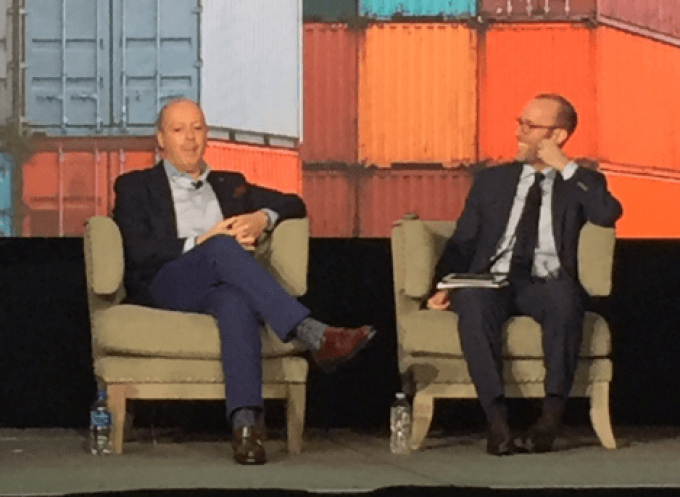More luck than judgment? Top 10 box lines enjoy elusive balance
Something of a sweet spot?

Despite being a founding member of a group of leading shipping lines that have formed an association to develop digital standards for the industry, the chief information officer of MSC has claimed that technology will not become a differentiator between lines.
Speaking at the JOC’s annual ...

Comment on this article
Ingvar Bergman
March 08, 2019 at 7:20 amMaersk’s Soren Skou recently said Maersk will offer easier booking procedures and provide ancillary services like customs clearance etc. and be an end-to-end provider ! Is’nt it a bit too late?
Fifty years ago when the container popped up in Europé, smart forwarders saw their possibility to earn money and invented the NVOCC while the liner operators were busy in trying to accomodate these boxes into a ‘beutiful’ liner by adding container section and adjust deckspace. I fail to understand why now? Does Mr Skou believe NVOCC or 3Pl will let Maersk or any other carrier for that matter into this part of shipping ? And isn’t the NVOCC/3Pl the lines most frequent and largest customers ? Stay within the reach of the STS-cranes and do not try to crawl further up the beach. You will loose more than you earn.